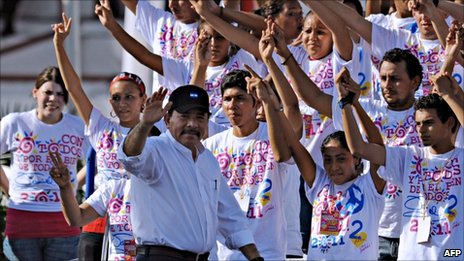Nicaragua Seeks Retribution
On the 32nd anniversary of the Nicaraguan Sandinista revolution, President Daniel Ortega proposed a referendum that would hold the U.S. responsible for financial restitution to Nicaragua for its repeated violations of international law during the revolution, on the order of USD 17 billion. According to Ortega, the people of Nicaragua hold the ultimate power to decide whether the “debt owed by the Yankee state” will be demanded. In 1986, the International Court of Justice (ICJ) ruled that Washington violated international law through its involvement in the covert backing of the Nicaraguan opposition, the “Contras,” in the illegal war against the government of Nicaragua. Under former President Violeta Barrios de Chamorro, Nicaragua later dropped the charges and did not seek the compensation ordered by the ICJ. However, as the opposition in Nicaragua points out, Ortega’s proposal is meaningless because the charges were dropped in 1990. While the referendum may be an attempt to gain popular support before the upcoming elections in November, Ortega has drawn international attention to the nature of the relationship that the U.S. and Nicaragua maintained throughout the 1980s. Many legal scholars back the probity of Nicaragua’s stand and energetically back its claims. Since both countries have made efforts to discourage the world from looking at the relationship through a 1980s perspective, the proposal will not be pleasing to the United States. It could, in fact, embarrass the Obama administration since the U.S. was, without a doubt, guilty of waging an illegal war against the then sovereign government of Nicaragua. The initiative itself is a bold asserting of Nicaraguan interests, which will win over the hearts and minds of many Third World countries; no doubt that this boldness is entirely warranted. However, the timing of the exposure of such a proposal calls into question the wisdom and proper timing of Ortega’s claims as well as highlights a moment in U.S.-Nicaraguan relations that both countries should or at least have attempted to bury in the past.


